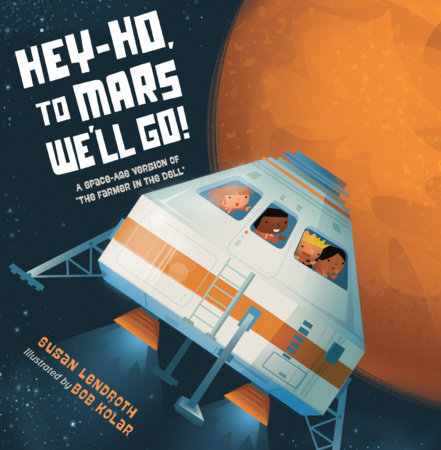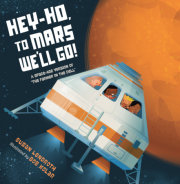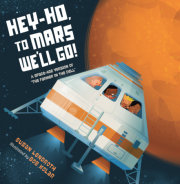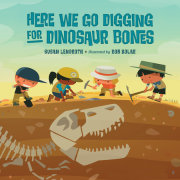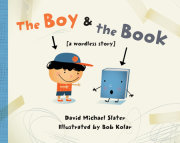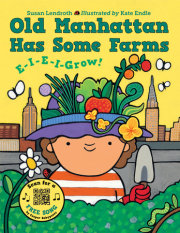The rocket’s on the pad,
The rocket’s on the pad.
Hey-ho, to Mars we’ll go—
The rocket’s on the pad.
When you jump into the air, gravity pulls you back to the ground. Launching a rocket into space is hard because the Earth’s gravity is pulling the rocket in the opposite direction. The bigger and heavier the rocket, the more power you need to break free from the gravitational pull.
We launch with a roar,
We launch with a roar.
Hey-ho, to Mars we’ll go—
We launch with a ROOOOOAR!
To travel to Mars you will need a spaceship big enough to carry you and your crew, your food, your water, and all of your supplies. It’s easier to launch such a big spaceship from orbit than from Earth.
You could build the spaceship in space, carrying up one piece at a time on several trips. That’s how astronauts built the International Space Station that now orbits Earth. Once your Mars spaceship is assembled, you will travel to it in a smaller rocket.
Copyright © 2018 by Susan Lendroth (Author); Bob Kolar (Illustrator). All rights reserved. No part of this excerpt may be reproduced or reprinted without permission in writing from the publisher.

